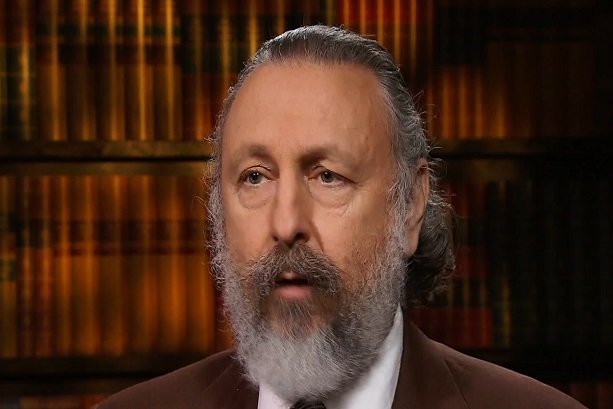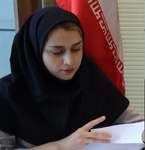On 30 September 2015, following a formal request by the Syrian government for military help against rebels and terrorist groups, Russia intervened militarily in the Syrian crisis. The activities consisted of air strikes primarily in north-western Syria against terrorist groups fighting Syrian government, including al-Nusra Front, ISIL and the Jeish al-Fath (Army of Conquest). On 24 November 2015, a Russian Sukhoi Su-24 aircraft was shot down by a Turkish Air Force F-16 fighter jet, the first time a NATO country targeted a Russian plane in half a century.
In an exclusive interview with Mehr News, James George Jatras discussed the Russian war against terrorism in Syria and the possibilities and consequences regarding the issue:
Syria seems to have been turned into a battleground for west coalition and Assad supporters. How do you compare the achievements by Russia's military campaign, so far, and US-coalition in Syria?
From all reports the Russian campaign seems much more effectively targeted at ISIL and the other terror groups like al-Nusra. The difference is that Russia's goals are clear: preserve the Syrian government and state, kill the terrorists. The US-led coalition's goals are at best ambiguous: fight (or pretend to fight) ISIL while keeping them as a pressure against Assad, whose overthrow remains a western goal. And of course, our so-called coalition includes countries like Turkey and Saudi Arabia, who are really on the side of ISIL. That's why I have posted a petition on the White House site to declare Turkey a State Sponsor of Terrorism: https://petitions.whitehouse.gov/petition/list-erdogans-turkey-state-sponsor-terrorism-void-us-alliance-turkey
The military campaign reportedly costs $4 million per day according to IHS Jane’s; what interests and benefits push Russia to launch and continue its fight against terrorism in Syria?
Russia cannot afford another Libyan-style chaos, or worse ISIL's black flag over Damascus, only a long day's drive from the Russian border. For Russia, this is a very real terrorist threat. Also, Moscow is signaling that the days of the US-run "regime change" machine are over. Also, the Orthodox Church in Russia is a very strong influence with the Kremlin. The idea that terrorists would eliminate Syria's Christians, along with millions of Alawites, Shiites, and secular Sunnis, if not acceptable to Mr. Putin, and rightly so.
How do you evaluate the consequences, I mean the sanctions, of Turkey’s downing of a Russian fighter jet? Why Russia answered Turkey's act in such a way?
I don't think we know yet what the full consequences will be. Russia has made some modest steps on the economic front, but President Putin has signaled there will be more. He has also made this very personal with President Erdogan. This is not over yet.
It seems Turkey has downed the fighter jet feeling support from NATO against possible Russia retaliation. Considering previous cases in Georgia and Ukraine, do you think NATO would take measures in case of Russian military measures against Turkey?
In order to keep open the lifeline to his terrorist clients, Erdogan is seeking to turn his confrontation with Russia into one between Russia and NATO. It is clear that beyond pro forma pledges of solidarity most NATO members don’t want to take the bait. The Turkey-Russia confrontation could become a potential flashpoint for World War III if Erdogan’s dirty game goes wrong (or in some warped minds, “right”), and it’s hardly likely our European allies would be any more enthusiastic for that possibility than they were when the Ukraine conflict appeared to be escalating uncontrollably. Indeed, Erodgan’s adventurism in support of ISIS and other jihadists raises the question: Why we are allied with Turkey in the first place? (examples: Rep. Dana Rohrabacher (R-CA), Chairman of House Subcommittee on Europe; “Turkey is now a huge liability for NATO — and America”; “Turkey Downs Russian Plane, Joins With Islamic State: US Should Drop New Ottoman Empire As Ally”; “Time Has Passed the Turkish Alliance By”).
Never has Turkey’s stock in Washington been as low as it is now. Conversely, never have so many voices not usually friendly to Russia or President Vladimir Putin now taken a pro-Moscow stance.
What is the impact of Russia’s military involvement in Syria on the position of the Islamic Republic of Iran in the region, as the most important ally of the Syrian government?
Clearly, Russia and Iran have very different social, political, and ideological identities based largely on religion. But their strategic interests intersect in Syria, and there are no obviously points of strategic discord. That is likely enough for the time being.
James George Jatras is Deputy Director of the American Institute in Ukraine, a privately funded American NGO. Based in Washington, DC, he is a former U.S. diplomat and adviser to the US Senate Republican leadership.
Interview by Lachin Rezaian


























Your Comment